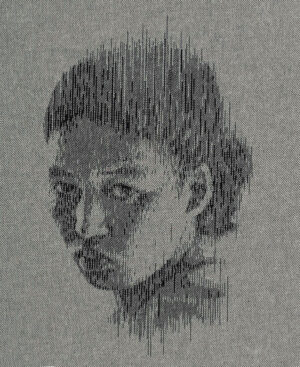The Elusive Art of Kumi Yamashita
Flinn Gallery, Greenwich, CT • flinngallery.com • Through November 6, 2024

Opening the Flinn Gallery’s 2024–25 season, The Elusive Art of Kumi Yamashita offers a glimpse into the contemplative vision of Yamashita, whose work explores her fascination with the human form and human condition. She’s been described as a “conceptual humanist,” and owns it: “I think that might be one of the best descriptions of my work and subject matter,” she says. The process of bringing these ideas to fruition is a painstaking one, although the work comes to Yamashita “fully formed.” Then, she says, “I see my job as attempting to faithfully transfer that vision into the physical world.” Exhibition viewers can expect to see subtly provocative works that embody this approach.
Yamashita’s “Light & Shadow” series suggests the nonphysical underlayer of image, reminding us that nothing is static. Light is both illumination and life force—shadow and light are mediums. Carved wood numbers affixed to the wall, strategically illuminated to suggest a face; all is positioned to give definition to human form, with echoes of shadow boxes and early photography. Yamashita’s portraits are no ordinary portraits: taking the concept of pointillism to a three-dimensional level, Yamashita “draws” with thousands of galvanized nails and a single thread that connects them, coalescing like a constellation atop the image. These threads are both literal and metaphorical: “Experiencing common threads that connect us all has always been an inspiration for my creativity,” Yamashita says.
Born in Takasaki, Japan, Yamashita currently lives and works in Woodstock, NY. Her work is held in the collections of institutions the world over, including museums and corporations. In the Flinn Gallery iteration, curator Leslee Asch hopes viewers will “expand their understanding of the possibilities of the varied media [Yamashita] skillfully employs, and the breadth of her vision.”
As philosophers and artists have long understood, without light, there is only darkness. As Carl Jung said, “Everyone carries a shadow, and the less it is embodied in the individual’s conscious life, the blacker and denser it is. If an inferiority is conscious, one always has a chance to correct it.” Yamashita speaks beautifully to this individual—and collective—truth.
— Julianna Thibodeau
